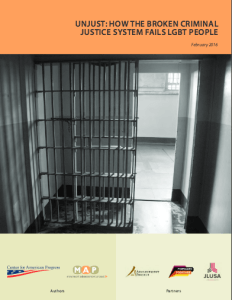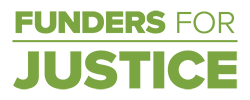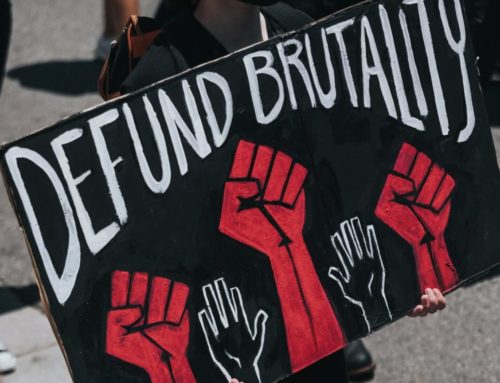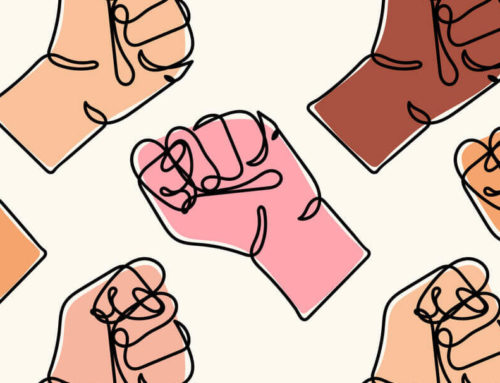Divest from Police, Invest in Communities
Over the past year, the murders of Nina Pop, Tony McDade, Breonna Taylor, George Floyd, Walter Wallace, and countless others have made increasingly clear what we already know, and what organizations such as M4BL and others continue to demand across the country: we must defund police, divest from carceral systems, and invest in safety for our communities.
As funders and resource organizers, we must get up to speed on the demands and organizing to divest/invest in order to ramp up resources for this work. This summer, FFJ refreshed and made necessary additions to our Divest/Invest website to provide political education around what divest/invest means, as well as a deep dive into various issue areas that includes updated analysis and highlights of the leadership of community organizations doing the work. Many thanks to Right to the City, RISE Together Fund, NFG’s Funders for a Just Economy and Democratizing Development Program, and others for your contributions.
In this resource, you’ll find a divest/invest frame and analysis for eighteen issue areas, including campaigns and groups leading the work, and funder colleagues in the issue area. You can also find recommendations and further resources for grantmakers. As philanthropy continues to ramp up our support of movement, we invite you to utilize the website as a resource – read this toolkit, send it to a colleague, & resource the work of organizations on the ground fighting for liberation.

Here some excerpts from the refreshed site. Please see our excerpts in ongoing FFJ member emails.
Impact of Criminalization on Rural Communities – “70 percent of prisons are in rural America. Prisons and detention centers have become a bedrock of employment for many rural communities. Additionally, more than half of immigrants detained by U.S. Immigration and Customs are housed in remote rural prisons. Today, many states are now leasing out incarcerated people to support corporate agriculture and other industries based in rural areas with disenfranchised laborers, a practice eerily reminiscent of the “convict leasing” seen during the Jim Crow era.”
Impact of Criminalization on Food Justice – Large agriculture companies have long looked to prisoners and probationers as a cheap, easily controllable labor force. Where the crackdown on hiring undocumented workers created labor shortages, companies were eager to use prison labor to harvest Vidalia onions and chickens in Georgia, tomatoes and watermelons in Arizona, and corn in Colorado. The National Black Food and Justice Alliance explains that because of the urgency of conditions, disenfranchisement, and continued exploitation and exclusion from food systems for Black communities, it is critical to reclaim, lift up and strengthen the abundance of Black food and justice work nationwide
Groups and Campaigns in Labor – The New Orleans Worker Center and other worker centers have launched or joined with anti-criminalization efforts to protect their members from aggressive policing, arrests, and detention. Traffic and misdemeanor courts are also a threat, issuing fines and fees that people have no way to pay. A clinic organized by Stand with Dignity cleared fines and fees averaging $8,000 for over 1,000 people, allowing members to drive again without the constant fear of arrest. Recognizing exploitation of labor and criminalization as the two main themes defining Black people’s history in the U.S., the Workers Center for Racial Justice in Chicago has a campaign to secure job vouchers for formerly incarcerated people.
And much more!
Our call to action:
- Check out the Divest/Invest website! Utilize this resource to find analysis and groups to bolster the urgent need to divest/invest. Look up the organizing groups in issue areas you fund, and learn more about issue areas you might not work in yet.
- Share this resource with co-workers and colleagues, letting them know which sections might be relevant to their work and interests.
- Fund groups now! This resource contains a robust list of just some of the organizations leading the way to divest/invest. It is imperative that we support their efforts.
Have questions about this resource, implementing your learnings, or how to fund? We invite you to reach out to us at fundersforjustice@nfg.org. There’s lots of work to do – let’s renew our efforts together.
In struggle,
The FFJ team
Additional Resources



